Listening Makes You a Better Communicator
Knowing the search queries that are bringing visitors to your website is key to an effective communications strategy. What people are searching for tells you what questions they are trying to answer and the topics they’re interested in. To track these, you need Google Search Console running on your website.
How to Install Google Search Console on Your Website
Google Search Console is free to use; the one requirement is a Google account. We recommend using a team-wide Google account (e.g.: info@yourwebsite.com) so that if someone leaves the organization, the account access doesn’t leave with them.
Step One: Create a Google Search Console Account
- Log into the Google account that will own Google Search Console
- Visit https://search.google.com/search-console/about and click the Start now button
- Choose the Domain option and enter the primary domain of your website
- Click the Continue button
- On the verification screen, choose the HTML tag verification option.
- Click the Copy button and copy your site verification code to your preferred text editor (e.g.: Word, Google Docs, LibreOffice, etc.)

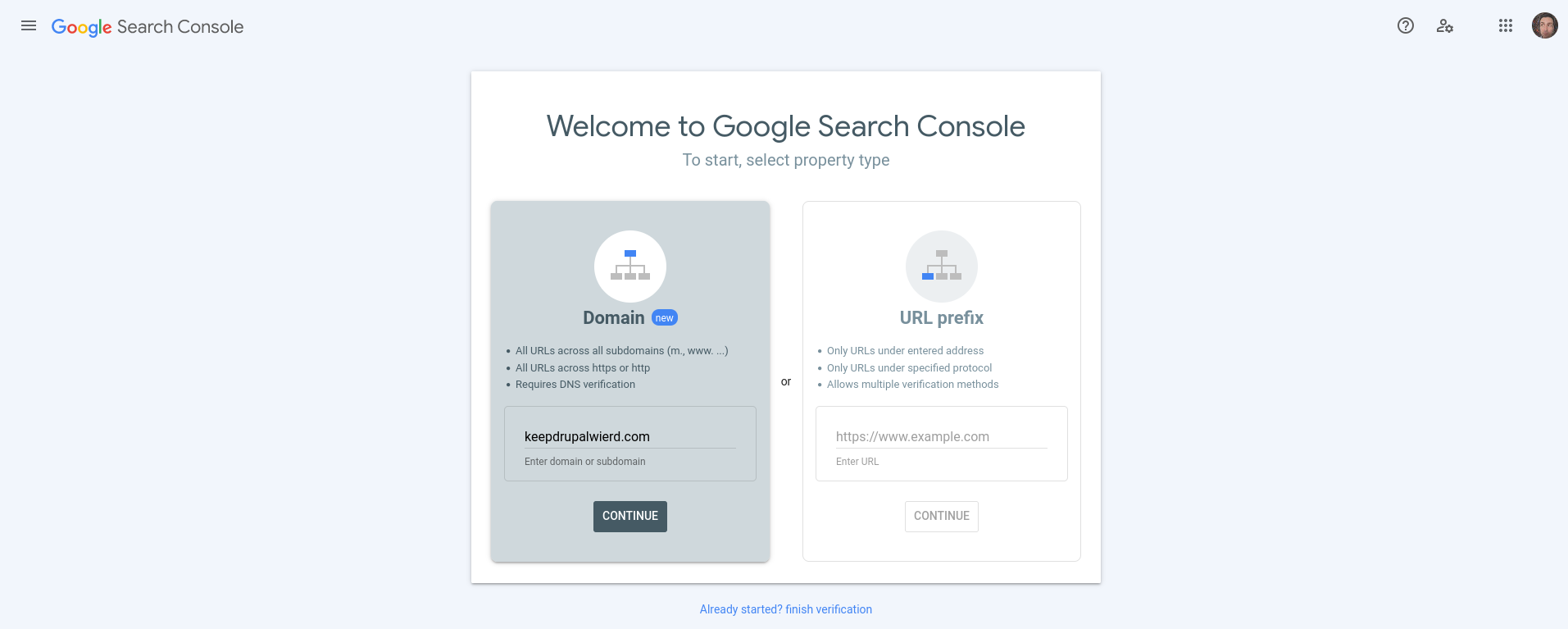
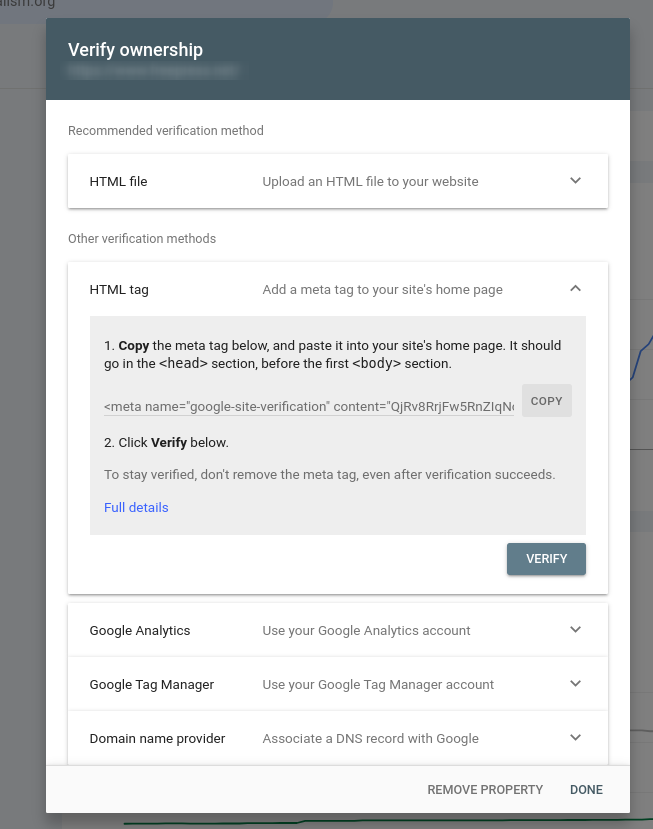
Step Two: Verify Domain Ownership
The following step is for whomever has developer access to your website, whether in-house staff, a freelancer, or a web agency with whom you partner. If that’s the case, share the site verification code with them so they can complete this step.
For developers, here is documentation for verifying domain ownership for Drupal and WordPress:
- How to verify a Drupal website for Google Search Console
- WordPress Google Search Console Verification
Bonus: Integrate Google Search Console with Your Analytics Tools
Make the most of your Google Search Console data by integrating it with the tool(s) you use for monitoring your site analytics.
Here are resources for developers on how to integrate Google Search Console data with Google Analytics and Plausible Analytics.
Once connected, you will have helpful information in your analytics dashboard about what people are searching for in Google that leads them to your website.
You can see this data within Google Search Console by visiting https://search.google.com/search-console
Here is a snapshot of FreePress.net’s search traffic.
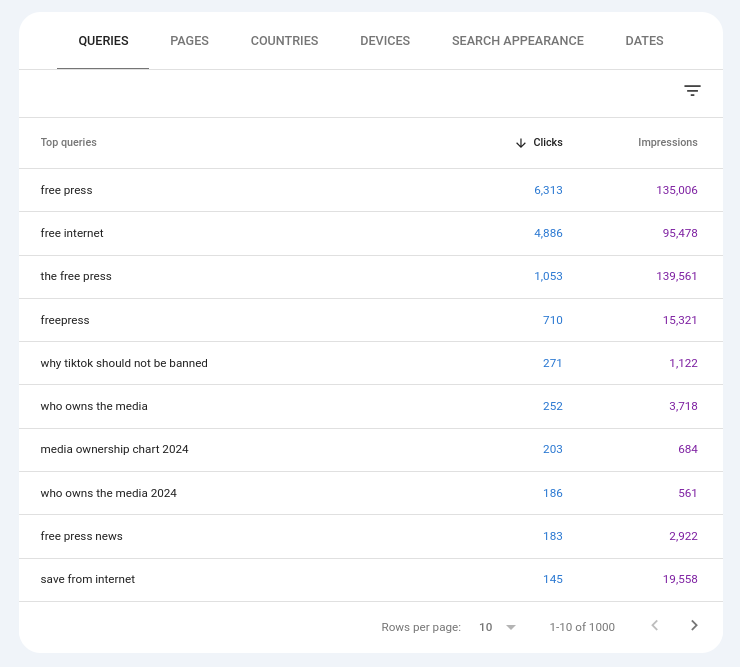
You can see that in the three months covered by this report, people clicked through to freepress.net 6,313 times from the Google Search result, “free press.” An “impression” is each time your website shows up for someone on a Google Search results page. So when people searched “free press”, the website appeared 135,006 times in Google Search results pages.
You can also view Google search queries in the broader context of your analytics tool.
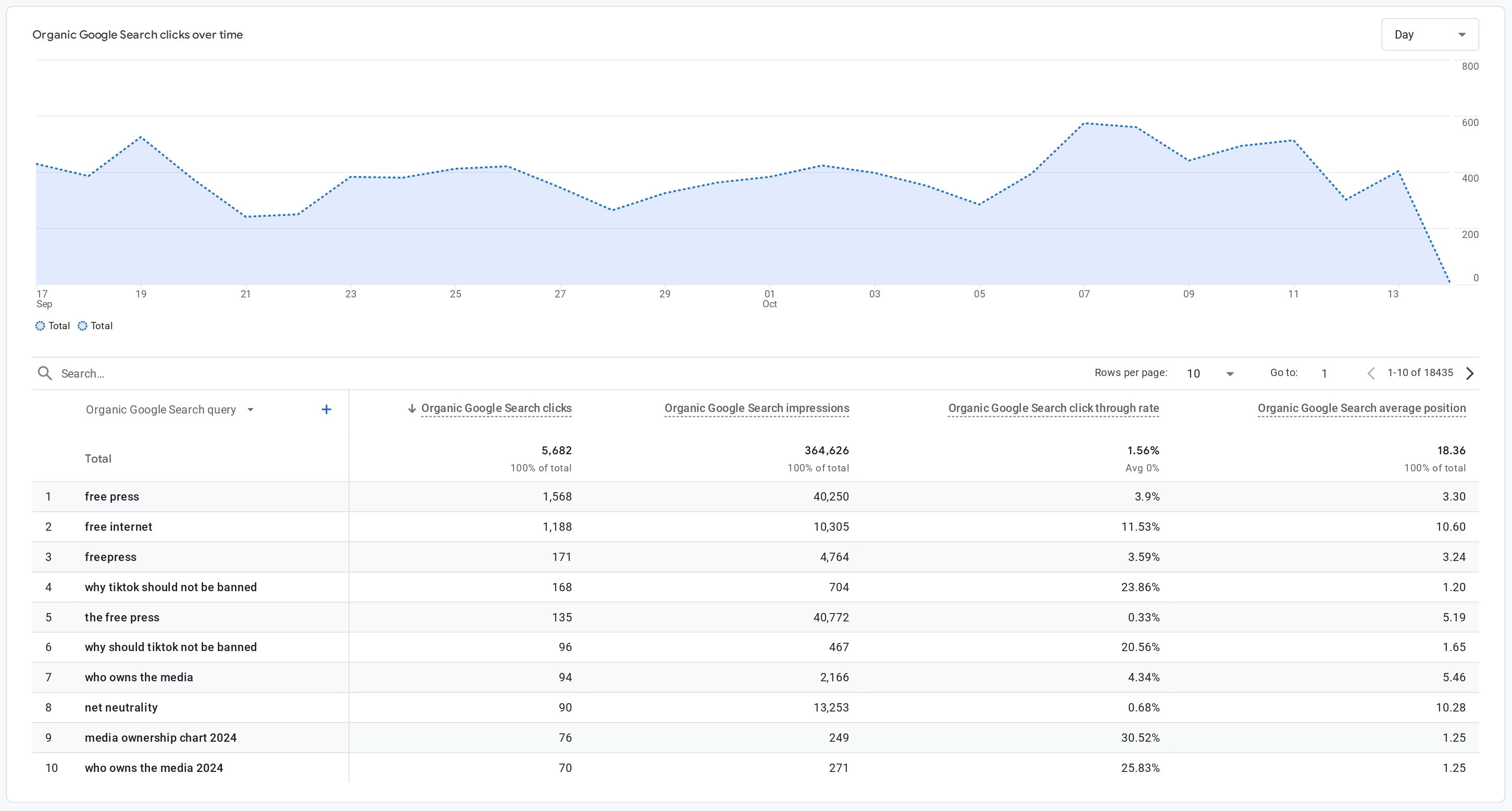
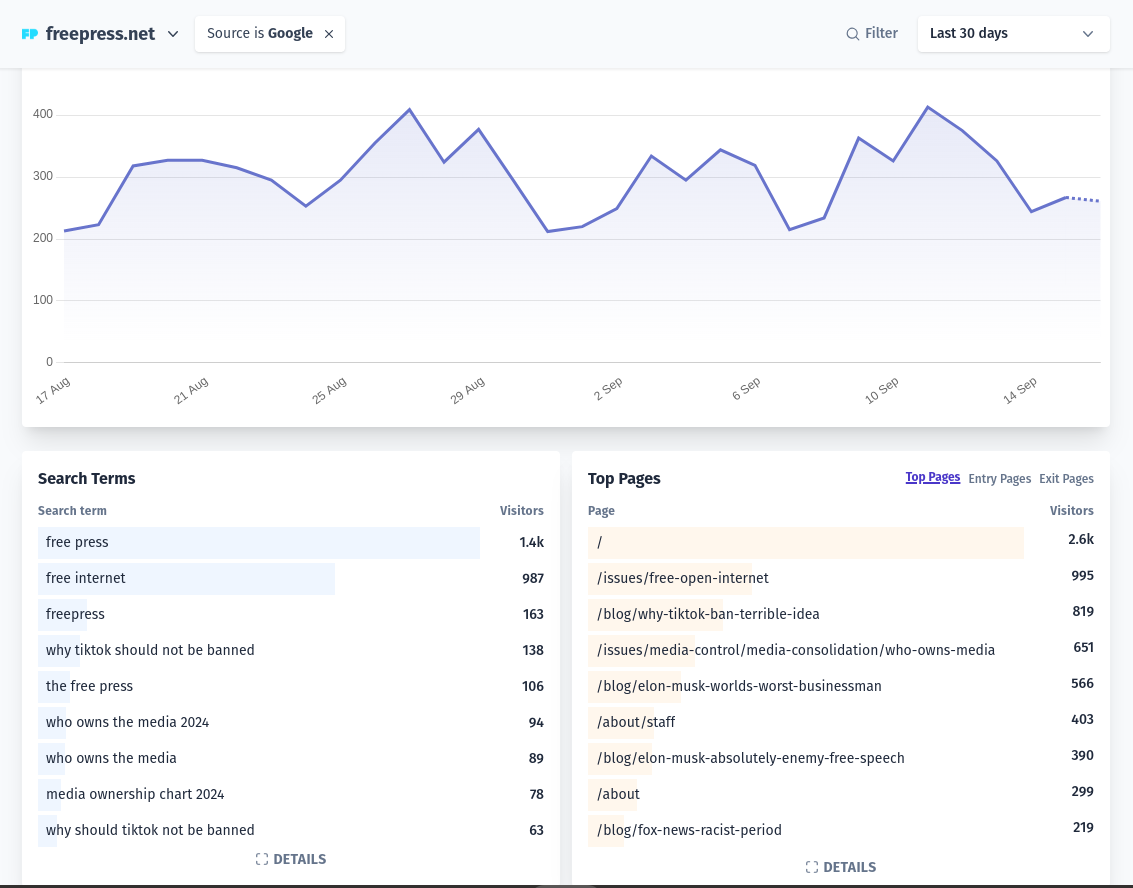
Using Google Search Console Data to Better Meet Your Audiences’ Needs
Now that you know what search queries are leading people to your website, you can make strategic and informed decisions about improving your content.
Free Press, in the example screenshot above, saw that many people are curious about, literally, “who owns the media”. When we launch their redesigned site in 2025 their “Who Owns the Media” page will have an interactive chart, making that page more engaging and informative.
You can also use popular search queries as inspiration for new blog posts, resources, and other website content. You can include key search terms in page titles to help make information more accessible. Knowing what questions people are asking helps you better meet their needs.
In this age of misinformation, being intentional and proactive about connecting your supporters with the information they’re seeking is a practice that can make the internet a better place!

Leave a comment